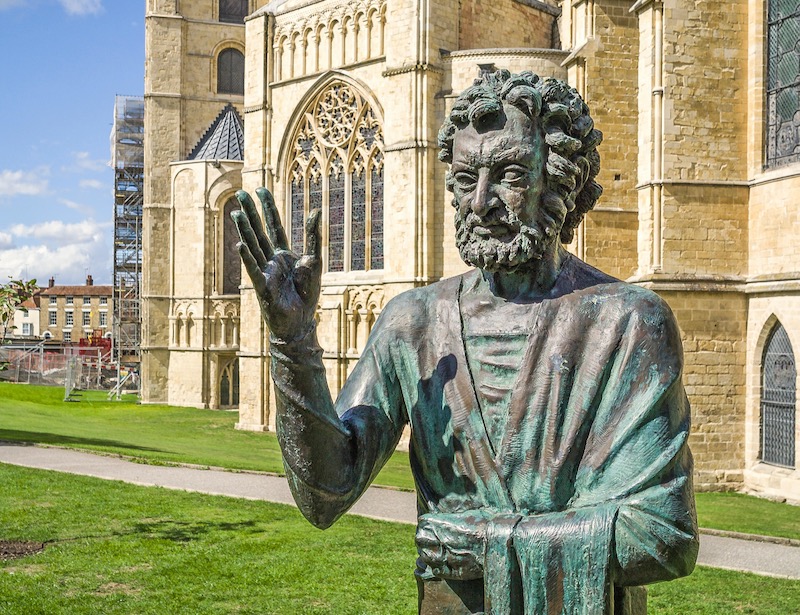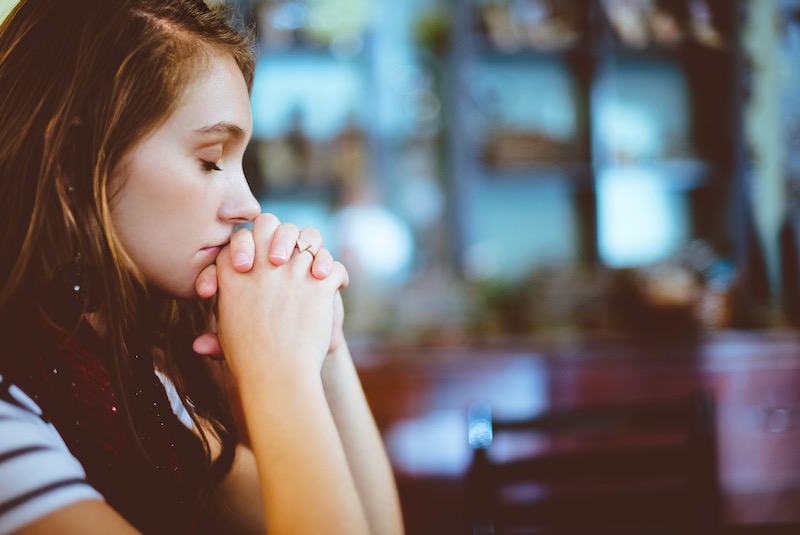We have sent in our submission to the archdiocese. This had to be in by February 18, and I was getting a little twitchy about not hearing anything about it in the parish. I had faith in our parish delegates, especially the chairman, who had promised that the results would be shared with the parish, but nothing had emerged in the newsletters since the submission date. In fact the newsletter for that weekend didn’t even mention the Synod. I decided to wait another week, and then maybe ask a tactful question or two. But the last weekend in February came up trumps, and there in the newsletter was a link to not only the submission but also the notes on the meetings.
I am truly grateful to the people involved in putting all this together. It must have taken a long time, and it has been done with great care and tact. There is good solid information about numbers of people attending as well as the necessarily subjective reporting about what was said. The pace of the meetings was quite slow, because the microphone had to be passed each time to the person wishing to speak, but this turned out to be a real advantage, as everyone had time to think, time to listen and those making notes had time to write them.
Some people turned up with a written submission, which they read out to the assembly. They were then warmly encouraged (whatever it said) to give a copy to the delegates to be included in the parish’s submission, and these were attached to the notes in the link on the newsletter. (I should also say that the newsletter offered a hard copy available from the Parish Office to anyone who couldn’t get it on line, and there is a brief one-page summary in hard copy in a pile on the table in the porch.)
At the meetings, the chairman tried to direct the comments towards the questions suggested by the archdiocese, but one consequence of never asking the laity before for their opinions meant that some of us regarded this as our one and only opportunity to air various grievances, complain about the iniquities of the present day as compared with a past golden age, or take out a favourite hobbyhorse and canter freely several times around the park. I think these written submissions tend to unbalance the picture, and they don’t necessarily address the questions we were trying to address; but having said that, it was very important to hear them read, and worth attaching them in full. If this process leads to more people feeling genuinely seen and heard in their own parishes, it will already have achieved something valuable. Most parishes seem to function with a tiny core group who sort out everything between themselves and then present it to the parish on a take it or leave it basis, but that is not good enough as a reflection of what Christ wanted our communities to be.
I seized the opportunity of the synod meetings to ask one of my children who does not come to Mass why not, as this is a crucial question if you can find someone who will answer it. They (pronoun carefully chosen to give nothing away) said that going to Mass only made sense if there was some sort of a community to belong to, a group of people who made you feel welcome, took an interest in you and knew who you were. This had often been the case in smaller parishes abroad, but was not so here at home. They added that just having the chance of tea or coffee after Mass can actually make a big difference (that doesn’t happen after our Mass here). Certainly, in our parish, people know who our children are in the abstract, because they’ve seen them grow up, but they don’t feel seen or welcomed. And yes, that is not the point of going to Mass, but if we want our young people to come, we need to make them want to come. There were several complaints in our discussions, which I have to admit did not contain any young people, about the youth having no faith, or not enough, or not coming to Mass, but I was very impressed by a comment from our parish priest, who defended our youth vigorously. Not all of them were coming to Mass at this stage in their lives (he said), but he saw them out and about, and he was very proud of them and the witness they were giving in their daily lives. I was delighted to hear him say this.
Covid has made a huge difference to our normal parish life. Our numbers are very seriously reduced, and it’s difficult even to imagine them returning to what they were before. But Covid only accentuated a trend that was already clear, as our submission shows: many people talked about how there used to be far more people at Mass, but the numbers have been dropping for years and the congregations getting older. Different people diagnose this differently, and also prescribe differently. One person’s suggested solution (more children reading at the Family Mass, the homily focussed on the children) would actively discourage others, so the conclusion has to be that we need different styles of worship available; some people actively like bad hymns, and who am I to judge? Our submission says that variety is necessary, but does not address how to do that in the future with fewer priests and fewer Masses.
The introduction to our submission explains that it reflects our views not as a collective position, but as a record of views expressed. I think that was extremely sensible of those who put it together, as there were some diametrically opposed views presented, from the man who thought the time had come for married priests because their wives could cook dinner for them (I am quoting verbatim here) to those who expressed discomfort with the Church’s refusal even to discuss women priests. Sometimes, listening to the comments, I found it difficult to realise I lived in the same parish as the person speaking (someone described Our Lady as rarely spoken of), but I think this is because the question is often more subtle than our submitted answers can convey. We have parish daily Rosaries, we have weekly Rosary intentions, we have statues, we have Mary hymns; but we don’t talk about her except on her big feasts, and I think this is because she’s a girl. We desperately need more simple visibility of women in the Church. Our parish proudly says: “Women play a predominant role in the running of the parish,” and indeed they do, but it’s all ancillary – I suspect because it’s always been that way. Even so, at our meetings we had people complaining about female altar servers, because they deter the boys, and that’s why we don’t have enough any more; and we had a sad comment from one family where the son had not wanted to continue as an altar server because his sister had been warned off.
When asked to address the question of the Church’s standing in the world, the parish’s feeling was clearer and more united. Scandal had badly hurt the Church, and had not been well-handled; there was too much wealth; there was too much stress on rank and hierarchy, so that the laity was not involved in any decision-making, and this needs to change. The Church’s past attitude to LGBT members has been too judgmental and punitive; similarly with divorced people, although we did still have people preferring the orthodox position on both, and our priest took pains to explain that the Synod was not going to change any of the Church’s teachings, and the Prime Minister’s wedding in Westminster Cathedral was within the rules.
Some people are clearly hankering after the old days, and our submission faithfully recorded their views, though I wonder if they ever consider where the young vibrant priests they have plans to deploy in schools and universities might be coming from. I think it will be a long time before schools would prefer this to the (lay female) chaplains that many have at present, and as a Catholic parent myself, I feel more comfortable with those. This is sad, but it is the natural consequence of past events. It’s the same with compulsory Catholic schooling : I am not going to send my children to a Catholic school unless it’s a good one, and ‘Catholic parents’ as a group cannot be expected to behave differently. I also have no problem with non-Catholic teachers in Catholic schools, so long as they are good teachers, although this came up. There were some bad (but very devout) teachers at my school, but children deserve better, and need the best education that we can give them.
The third section of the discussion was on mission and reaching out, and this was one of the most positive parts of our discussions and our submission. It was a surprise even to parish members to discover quite how much outreach is going on locally, and it was good to be talking about what we could do, instead of complaining about others not doing things. Catholics seem to find it too easy to develop their judgmental muscles, so this was a good corrective. The emphasis in this section came back to us and how we could make a difference where we live. This is one angle where our youth might be interested, I think. One major parish takeaway from the whole process is that not enough information is being shared about the various activities. Our parish, working with other churches in the town, has street pastors and various soup kitchens and other practical initiatives, all non-denominational but full of faith, and I imagine many other parishes do too. There were even more before Covid, and I see some already being set up again now. We hope to see our ecumenical street services at Christmas and Easter revive post-Covid, because they were a good way to let people know that we are here in the town. We discussed how to get involved, to play a part, and Father reminded us that we may often not know how much influence we have had (because that’s not important); what matters is being available to make a difference if God wants us to do so. Just as we often don’t recognise angels until they’ve left the scene, so you can do something and never know how or when the ripples reach the farther shore.
Now we are going to have another meeting for feedback on our submission and what happens next. I found it fascinating to read the various documents and to follow the process through, so I shall be going. I hope after that we will be able to draw some conclusions even at a parish level about the whole process, which will after all still be continuing for some time. Our little piece of the mosaic is ready to be put into the picture, but we can’t see the design yet. Let us hope it will be beautiful.
Kate Keefe composes musical settings for the Mass and writes about the psalms. You can follow her on Facebook, Twitter and LinkedIn



 Loading ...
Loading ...
What do you think?
You can post as a subscriber user ...
User comments (0)